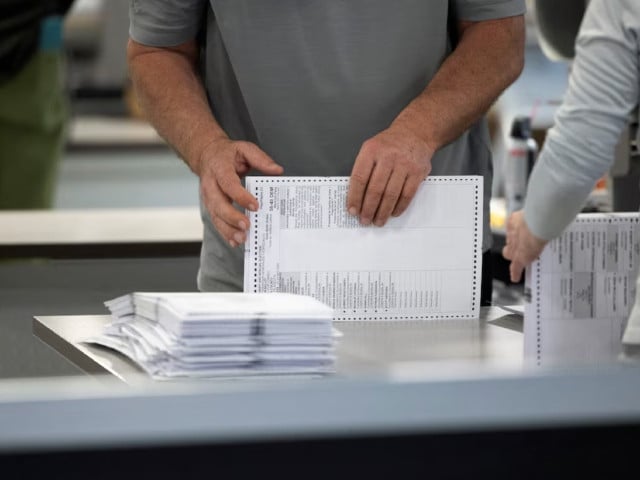
In a significant ruling, the Pennsylvania Supreme Court has upheld the state's "notice and cure" procedures, allowing election officials to inform voters about mistakes on their mail-in ballots and enabling them to make corrections.
This decision is a setback for the Republican National Committee (RNC), which had sought to block these procedures ahead of the pivotal November 5 presidential election, where former President Donald Trump faces off against Vice President Kamala Harris.
The court declined to hear the RNC's lawsuit, stating that the case was filed too close to the election date. Pennsylvania, a crucial battleground state with 19 electoral votes, is likely to play a vital role in determining the next US president.
The RNC's legal challenge is part of a broader strategy involving over 120 lawsuits across 26 states aimed at ensuring election integrity, according to Republican officials.
However, critics, including voting rights advocates and legal experts, contend that these lawsuits may be designed to suppress Democratic voter turnout.
In another ruling on the same day, the Pennsylvania Supreme Court dismissed a case from voting rights groups that challenged a state requirement mandating mail-in ballots to have the correct date for them to be counted.
The court also deemed that this lawsuit was filed too late in the election cycle.
The use of mail-in ballots surged during the COVID-19 pandemic, and Trump has repeatedly criticized their reliability without presenting evidence to support his claims.
The RNC argued that local election boards were not granted the authority to adopt the notice and cure procedures, which are intended to enhance voter participation.
In response, the Democratic National Committee (DNC) and its state affiliate contended that Pennsylvania law does indeed empower local boards to implement such measures.
Charles Lutvak, a spokesperson for Harris’ campaign, hailed the Supreme Court's ruling as a victory for democracy itself, rather than solely for Democrats.
In a related context, Georgia's election board recently voted to implement a manual count of ballots for the upcoming election, a decision that has drawn considerable controversy.
This move, made by a 3-2 vote, mandates that ballots scanned by voting machines be hand-counted across the state’s 6,500 precincts, beginning on election night.
Supporters of this new rule argue that hand counting will enhance election accuracy and transparency.
Janelle King, a member of the board, emphasized the importance of prioritizing accuracy over speed in the election process.
However, critics, including election officials and legal experts, have raised concerns about the potential for logistical challenges, increased errors, and the risk of undermining public confidence in the electoral system.
This dual focus on ballot integrity in both Pennsylvania and Georgia reflects broader national debates about voting procedures and election security, as both parties prepare for a contentious election season.
With crucial battleground states like Pennsylvania and Georgia at the forefront, the outcomes of these legal battles could have significant implications for voter turnout and the overall integrity of the electoral process.

1728386780-0/BeFunky-collage-(38)1728386780-0-165x106.webp)


1721987069-0/diddy-tupac-(1)1721987069-0-165x106.webp)






1727916551-0/Untitled-design-(39)1727916551-0-270x192.webp)
1726899582-0/BeFunk_§_-(22)1726899582-0.jpg)






COMMENTS
Comments are moderated and generally will be posted if they are on-topic and not abusive.
For more information, please see our Comments FAQ